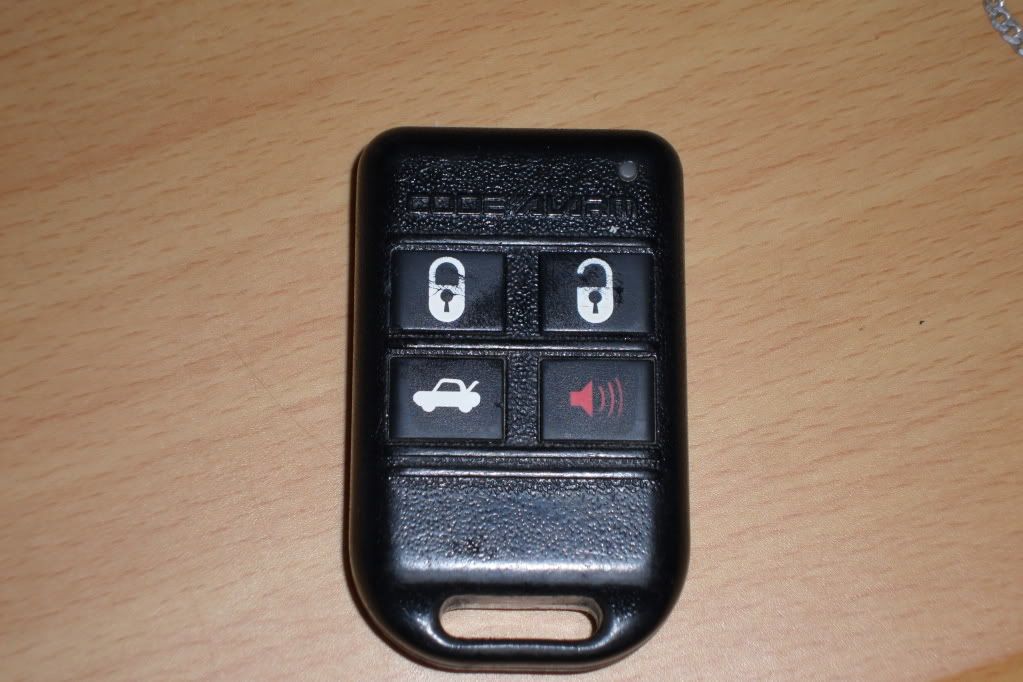Results 991 to 1,000 of 1592
-
 Verified Tsikot Member
Verified Tsikot Member

- Join Date
- Jan 2011
- Posts
- 24
-
January 18th, 2011 08:41 PM #992
-
January 19th, 2011 01:10 PM #993
-
January 19th, 2011 04:35 PM #994
-
January 20th, 2011 12:20 AM #995
Ito ung link sir: http://tsikot.yehey.com/forums/showthread.php?t=77484
Pwede kung around 100 lang sana for a starter design, kahit siguro wala na muna ung rpm design na pabilog kasi prublema dyan pag ganun kaliliit, madali matanggal mga letra lalo na kung madalas mag pa carwash, mabilis matuklap/umangat ung dulo hanggang sa matanggal na ung buong letra. Just a suggestion, maliban na lang siguro kung puro 3m ung gagamitin na sticker
-
January 20th, 2011 02:08 PM #996
mga sir..ask ko lang po kung meron ba sa inyo ang may remote ng alarm ng kagaya nito...tanong ko lang po sana kung nakapag palit na kayo ng battery nito..pano ba buksan o palitan ang battery nito.parang mahina na kasi...maraming salamat po...

-
January 23rd, 2011 01:24 PM #997
Mga sir pwede po ba magkasabay ang nitrogen at ordinary air sa loob ng tire?
-
January 24th, 2011 10:11 PM #998
Sa pag kakaunawa ko di pwede kasi sayang lang ang nitro sa tire pag may halo na compressed air. correct me if i'm wrong.
Quoted:
One of the most important parts of your car is each of the four tires. They constitute the interface of your car with the road. Given their importance, doesn't it make sense to give some thought to what you put in the tires to inflate them? The issue boils down to nitrogen versus compressed air.
Tire pressure and performance is one of the most abused elements of car by drivers. The vast majority of people never even test the pressure of the tires unless the tire is visibly going flat. As a result, various studies have found that upwards of 90 percent of cars are driving on underinflated tires. This impacts the handling of your car and the tire wear. The next time you complain about the cost of replacing your tires, remind yourself that checking the pressure once a month would very likely have made them last much longer!
In the world of auto racing, every little advantage can make the difference between winning and finishing in the back of the pack. Given this fact, it probably is no surprise that teams in the various championships have given tires a lot of thought. Not only have the tires become very high tech, but they are not even filled with air anymore. Nope, teams go with nitrogen. The question for you and me is whether we should do the same in our street cars?
Why nitrogen? The answer is found in something known as "inertness". Simply put, nitrogen is an inert gas at less than extreme temperatures. The compressed air you find at the gas station is not. Oxygen is a key component in its makeup. This means the potential for oxidation is present. Over time, oxygen will degrade the inside of the rim and it will attack the steel belts in the tires.
Another difference between the two has to do with pressure maintenance. There are technical differences between how the two gases are combined on a molecular level. For the purposes of this article, all you need to know is nitrogen is bound in such a way that it tends to maintain the average pressure in the tire about three times as long as compressed air. It also tends to maintain that pressure regardless of the temperature of the tires, while compressed air will heat up and cool down.
So, should you go with nitrogen over compressed air for your tires? Nitrogen is definitely better than compressed air, but the value of this improvement is negligible on a commuter car. If you have expensive rims and/or tires, then it is probably worth it to protect them from oxidation. If you are just putting around in your Honda Civic, it probably isn't. Just make sure you check the tire pressure each month to avoid unnecessary wear and tear.
[SIZE=2]Dirk Gibson writes about cars and [/SIZE][SIZE=2]high performance car parts[/SIZE][SIZE=2] for DCJAutoParts.com - your source for auto parts online 24/7.[/SIZE]
[SIZE=2]Article Source: [/SIZE][SIZE=2]http://EzineArticles.com/?expert=Dirk_Gibson [/SIZE]
-
-
January 25th, 2011 01:49 AM #1000
Mga sir ok lang po ba mag mix and stock brake fluid at prestone na brake fluid? Same din po sa power steering fluid, stock ps fluid at stp na brake fluid? Mababa na po kasi yung level nilang dalawa dun sa lalagyanan, kahapon lang po kami nakabili ng mga fluid, maglalagay na po dapat ako kanina tapos sumagi sa isip ko na baka magkaiba yung unang nakalagay sa ilalagay ko na mga fluid. I mean magkaiba ng brands... Is it ok or not ok to mix 2 different brake fluids "brand" same as sa power steering fluid? TIA

Eto po yung ilalagay ko sana







 Reply With Quote
Reply With Quote

 any idea magkano po mag pa cut nito?
any idea magkano po mag pa cut nito?




Mas ok yung may easy access na cap. My Panasonic battery with i-stop (most of the time I missed to...
Which is better? Amaron or Panasonic Battery?